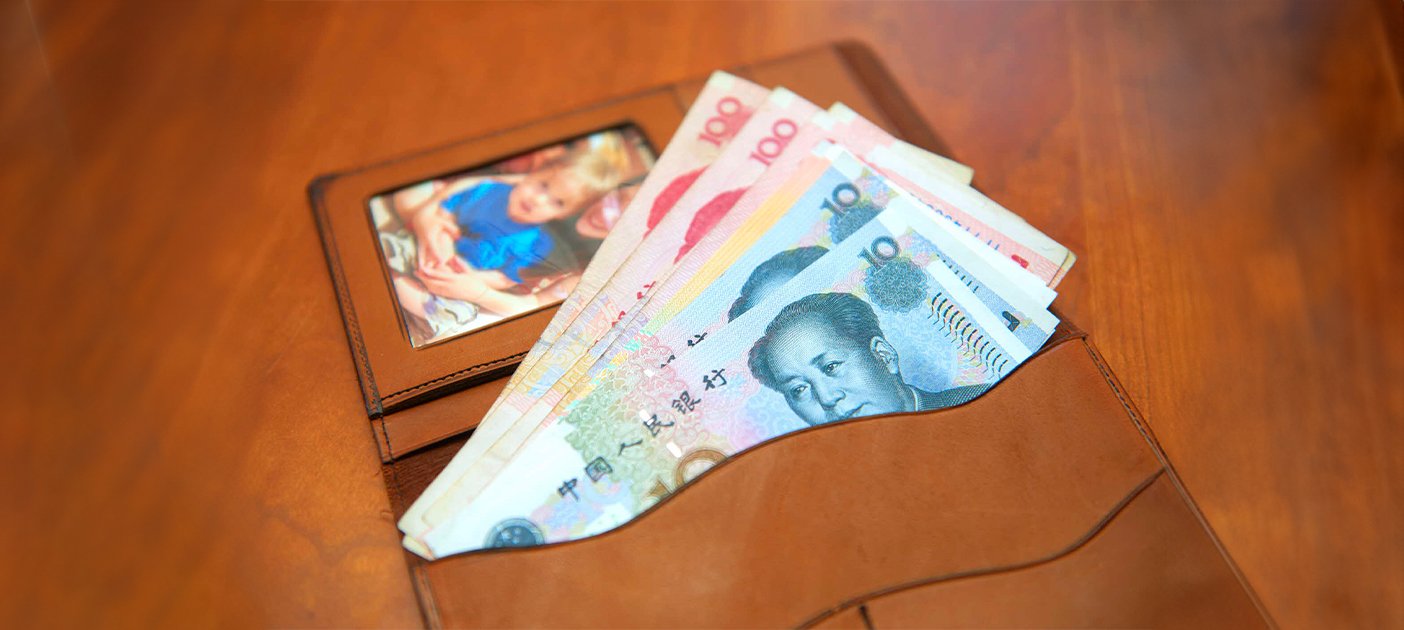10 money management tips for your holidays
![]()
If you’ve only got a minute:
- When planning for your holiday, set a budget on how much you can afford to spend during the trip, with a breakdown for each activity.
- By comparing airline and accommodation prices across multiple booking platforms, you can make informed decisions and choose the best options that suit your needs and budget.
- Travel insurance helps mitigate the financial impact of any unfortunate events that affect you on your travels and safeguards your well-being.
![]()
This article was produced in partnership with TripZilla.
Planning for a well-deserved holiday is always an exciting affair, especially if it’s your first one in a long time!
There’s often a sense of excitement when you start to imagine the different sights to see and places to visit. At the same time, it does take a lot of effort to plan the perfect trip as there is much to consider.
As you begin drawing up your travel plans, understanding how to manage your travel budget properly can help you get the most out of your adventure. After all, you wouldn’t want your long-awaited travel plans to be derailed by a lack of funds.
From determining how much of foreign currency is required for the trip to maximising the benefits of your credit cards, here are 10 essential money management tips for the modern globetrotter that are as important as a having a fun itinerary.
1. Have a travel budget
Before travelling, it helps to set a budget on how much you can afford to spend during the trip, with a breakdown for each activity.
By having a good understanding of your spending limits, you can make informed decisions about your travel plans and avoid unexpected financial surprises.
When drawing up your travel budget, consider factors such as the duration of your trip, accommodation costs, dining expenses, sightseeing activities, and potential shopping expenses.
You’ll also want to consider if any particular experiences might incur additional costs, such as splurging on an expensive meal at a famous restaurant or upgrading to a premium option at certain attractions.
By allocating funds to these different categories, you’ll gain a clearer picture of your financial resources and can adjust your travel plans accordingly.
Read more: Money-saving tips to upscale your next trip
2. Always bring cash
Even though we are moving towards a cashless society, always ensure that you have sufficient cash-on-hand when you travel to countries where transactions are still often done in cash.
In some exotic destinations, establishments might not provide electronic payment options either, so having enough physical cash is necessary and will certainly help avoid unnecessary complications.
Make sure to bring an amount of cash that’s proportionate to the length of your stay. Also, try to ensure that your notes are in good condition, because some places can get a little fussy.

3. Consider alternative payment methods
While most locations accept card and cash transactions, there may also be instances where you need to rely on other alternatives. For example, the most popular form of payment in Mainland China is neither cash nor card, but digital payment options via smartphone apps.
When making travel plans, you may also need to make payments in advance to establishments overseas (such as when booking hotels and tours in exotic locations), using remittance (international bank transfers).
DBS Remit is an example of a remittance service that allows you to enjoy zero-fee, same-day international money transfers in up to 19 different currencies to more than 50 locations across the globe!
New to DBS Remit? From now till 31 Dec 2025, receive S$12 cashback on your first DBS Remit transfer with either a single transaction or multiple transfers within the same calendar month amounting to S$300 on DBS Remit by using the promo code NEWREMIT.
Read more: Save more, wait less with DBS Remit
Find out more about: DBS Remit
4. Unlock rewards with your credit card or debit card
Many people choose to use a credit card when travelling. Besides offering fast and convenient transactions, they are widely accepted, meaning you don’t have to carry more cash than necessary.
What’s more, some credit cards offer discounts and cashback rewards when used overseas and allow you to collect miles points to spend on your next holiday.
If you prefer using a debit card instead, the DBS Travel Wallet is an option to consider!
All you have to do is link your DBS Visa Debit Card to your DBS multi-currency account (like DBS Multiplier or My Account) to access the 11 different currencies and spend them with zero foreign exchange conversion fees. Just remember to make sure that there is enough foreign currency in the account for your spending amount to be debited.
On top of that, you can set spending limits using the digibank app and enjoy up to 5% cashback when you spend overseas.
Find out more about: DBS Cards

5. Make wise air travel and accommodation decisions
Spending more time researching the best airfare and accommodation deals means spending less money on underwhelming flights and hotels.
When booking a flight, apart from fare prices, consider the airline’s baggage policies. While some airlines may offer generous baggage allowances, these benefits often come at a higher cost. Conversely, budget airlines may have stricter luggage restrictions but offer lower ticket prices.
Similarly, when booking your accommodation, you’ll want to weigh the pros and cons of each option. Some hotels may offer lower prices, but they may be located in areas that aren’t as convenient for travellers, while hotels that are situated near tourist hotspots often charge a higher price.
By comparing prices across multiple booking platforms, you can make informed decisions and choose the best options that suit your needs and budget. Make use of travel aggregators, like DBS Travel Marketplace to compare flight and hotel prices, and find discounts and deals that help you save even more on your travel expenses.
Find out more about: DBS Travel Marketplace

6. Keeping your bank in the loop offers better control over your money
Before embarking on your holiday, ensure your credit cards are authorised for international use. With DBS Payment Controls and digibank, you can easily manage your card settings with just a tap on your phone.
For example, if you happen to lose your card while travelling, you can quickly block it using the digibank app.
In addition to that, be sure that you know how to reach your bank while you’re abroad, in case any assistance is needed.
Find out more about: DBS Payment Controls
7. Protecting yourself with travel insurance
Getting travel insurance is arguably the most valuable money management tip for travellers in today’s world.
Whether it be lost luggage at the airport, medical emergencies, or unexpected trip cancellations, travel insurance provides financial protection against a multitude of unforeseen circumstances.
Having travel insurance like TravellerShield Plus helps mitigate the financial impact of any unfortunate events that affect you on your travels and safeguards your well-being.
Apart from a wide spectrum of coverage, TravellerShield Plus now offers coverage for travel delays as short as 30 minutes and even covers any Frequent Flyer Miles or Hotel Loyalty Points lost in case of trip cancellation. What’s more, with erratic weather and climate changes leading to more frequent unexpected emergencies, it’s also a good idea to have medical evacuation coverage just in case.
For added security, you can also eRegister your itinerary with the Singapore Ministry of Foreign Affairs. That way, you can be contactable in the event of an emergency.
Find out more about: Travellershield Plus
8. Trying out free experiences can offer a wealth of benefits
Before you embark on your next adventure, consider looking for free activities and experiences available at your chosen destination. Many popular tourist spots offer a variety of options for budget-conscious travellers.
What’s more, with cultural immersion and sustainable travel becoming increasingly popular, visiting museums and joining walking tours by locals allows you to truly experience the local culture of your destination.
By doing so, you can discover hidden gems, and save money on your overall travel expenses

9. Consider affordable travel options
Another great money management tip when travelling abroad is to look for the most cost-effective way to utilise local transport.
For example, using the Japan Rail Pass is the most affordable way to travel around Japan since it offers unlimited, nationwide travel on almost all trains operated by Japan Railways.
Meanwhile, cities like Rome and Geneva also have City Cards that offer unlimited rides on public transport within specified durations. Some of them even include free entry to certain attractions.
Doing a little research on your travel options within your chosen destination can be a ton of help when it comes to managing your money and expenses.
Read more: How to make your holiday more affordable
10. Securing your cash lets you explore with ease of mind
When travelling, one of the most basic money management tips is to ensure that your cash is safe. One way to do that is to only carry a certain amount with you and keep the rest stashed in the hotel safe. Just ensure that you remember the combination.
If a safe isn’t available at the place you are staying, you may choose to keep your cash in a locked suitcase or backpack. Consider attaching your backpack to immovable furniture for added security.
As for the cash you’re carrying as you go out and about, consider investing in a money belt of concealable pouches. If you’re keeping your cash in a bag, opt for bags with good anti-theft measures like tougher fabrics or secure zips.
Learning how to manage your money during your trip abroad is an invaluable lesson. You could even say that it’s the most crucial part of planning any trip abroad. Hopefully, these money management tips have given you a better idea of how to plan your trips financially, so you can now focus on the most important part — picking a destination to fuel your wanderlust!
Ready to start?
Need help selecting an investment? Try ‘Make Your Money Work Harder’ on digibank to receive specific investment picks based on your objectives, risk profile and preferences.
Speak to the Wealth Planning Manager today for a financial health check and how you can better plan your finances.
Disclaimers and Important Notice
This article is meant for information only and should not be relied upon as financial advice. Before making any decision to buy, sell or hold any investment or insurance product, you should seek advice from a financial adviser regarding its suitability.
All investments come with risks and you can lose money on your investment. Invest only if you understand and can monitor your investment. Diversify your investments and avoid investing a large portion of your money in a single product issuer.







That's great to hear. Anything you'd like to add? (Optional)
We’re sorry to hear that. How can we do better? (Optional)